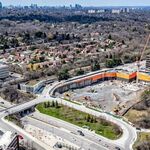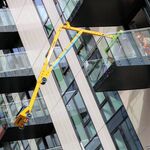crs1026
Superstar
In Montreal, there were plans to expand Grande Central's capacity for more EXO trains by constructing tunnels under the station. But the REM line has now made that impossible.
No one is saying we always get things right. The decision to sacrifice the Mount Royal tunnel for REM is a really wrongheaded decision, the reality is, two tunnels are needed so both rail lines are enabled . Trying to share was a Hail Mary fantasy that happily didn’t fly. Given that HSR is so slow to get started, I can’t fault Montreal for giving REM the priority, but a second tunnel project should be moving already and its cost ( it won’t be easy to thread thru the buildings, maybe it just isn’t possible) allocated across both projects.
The other possible mistakes are Ottawa and Barrie , but in both cases the urban improvement that has resulted may be better than having the rail line.
Saskatoon and Edmonton have both seen trackage let go that may be wanted some day, but only so many decades from now that the political vision may be unrealistic.
In the end we have to play the ball where it lues, and that may mean we don’t have much room to leverage existing rail corridors.
I do think that local transit is the chicken and regional or commuter rail is the egg. We need both to get people out of their cars. I disagree that building LRT is somehow sacrificing commuter rail…this is not a binary choice. Both are competing for the same envelope, and so the hest we can do is build some of each in parallel.
- Paul




